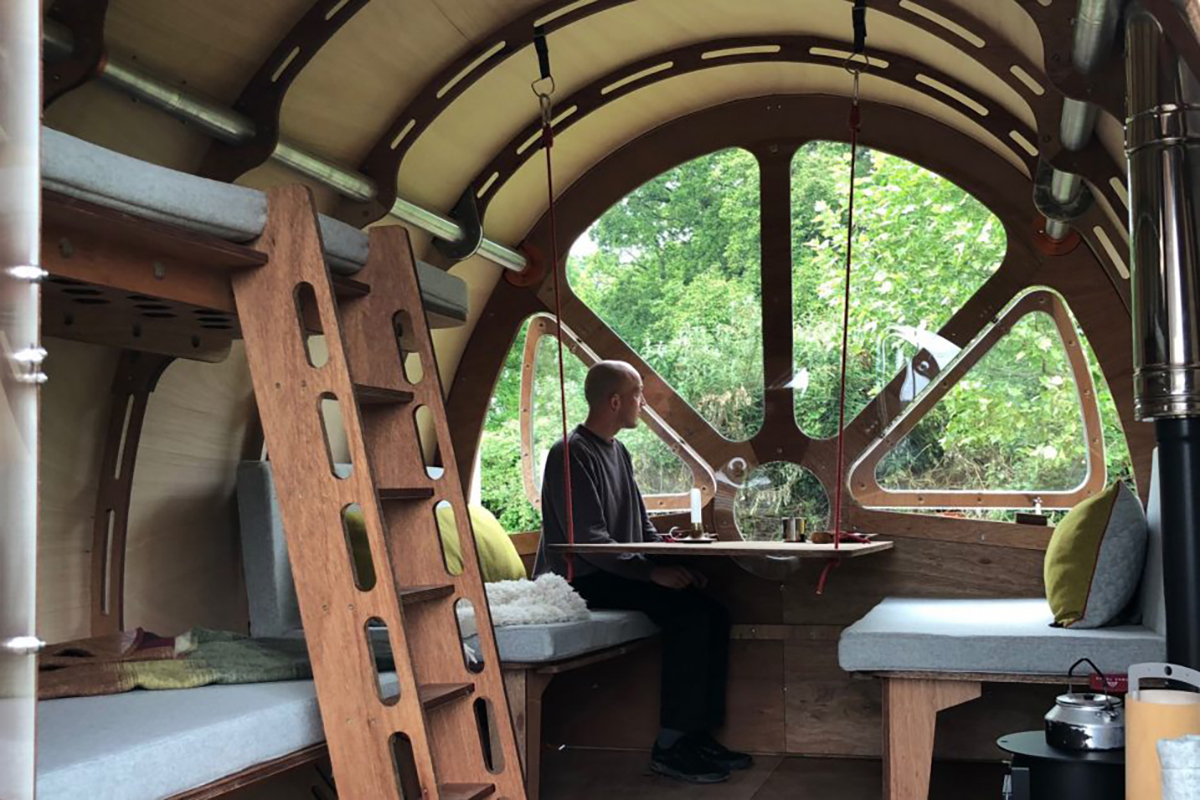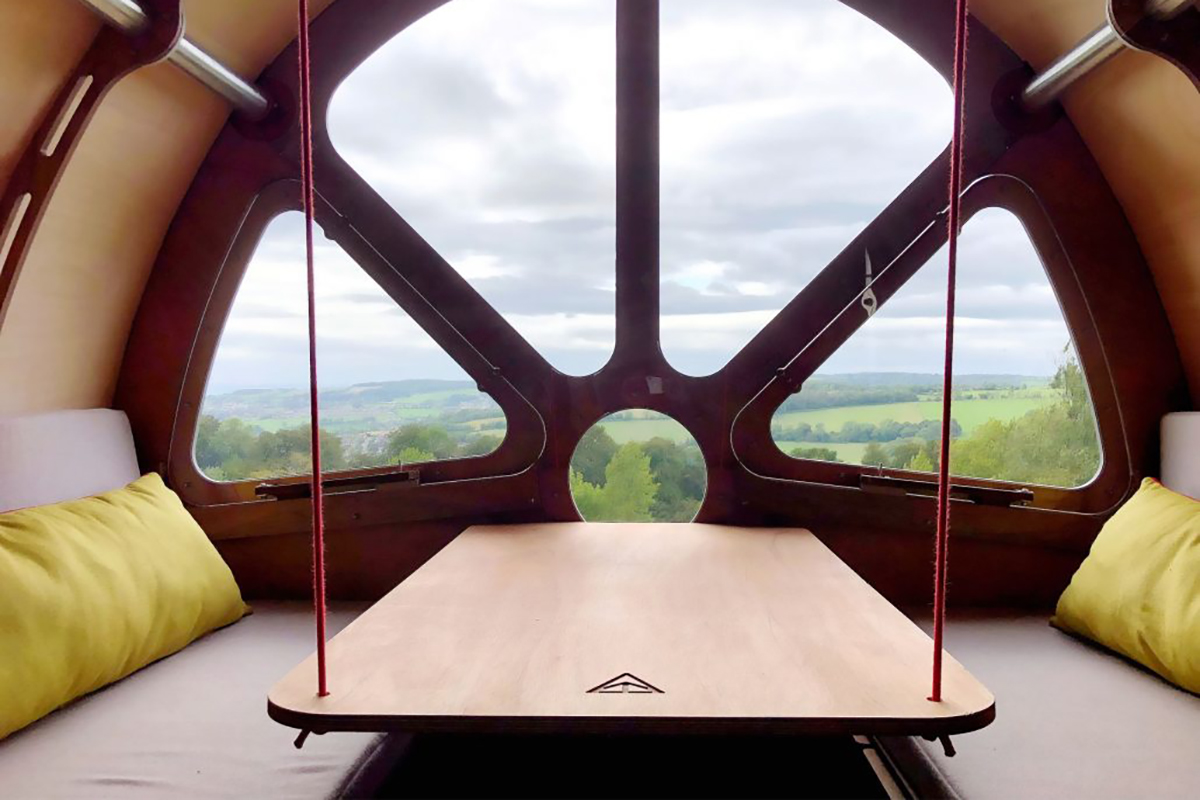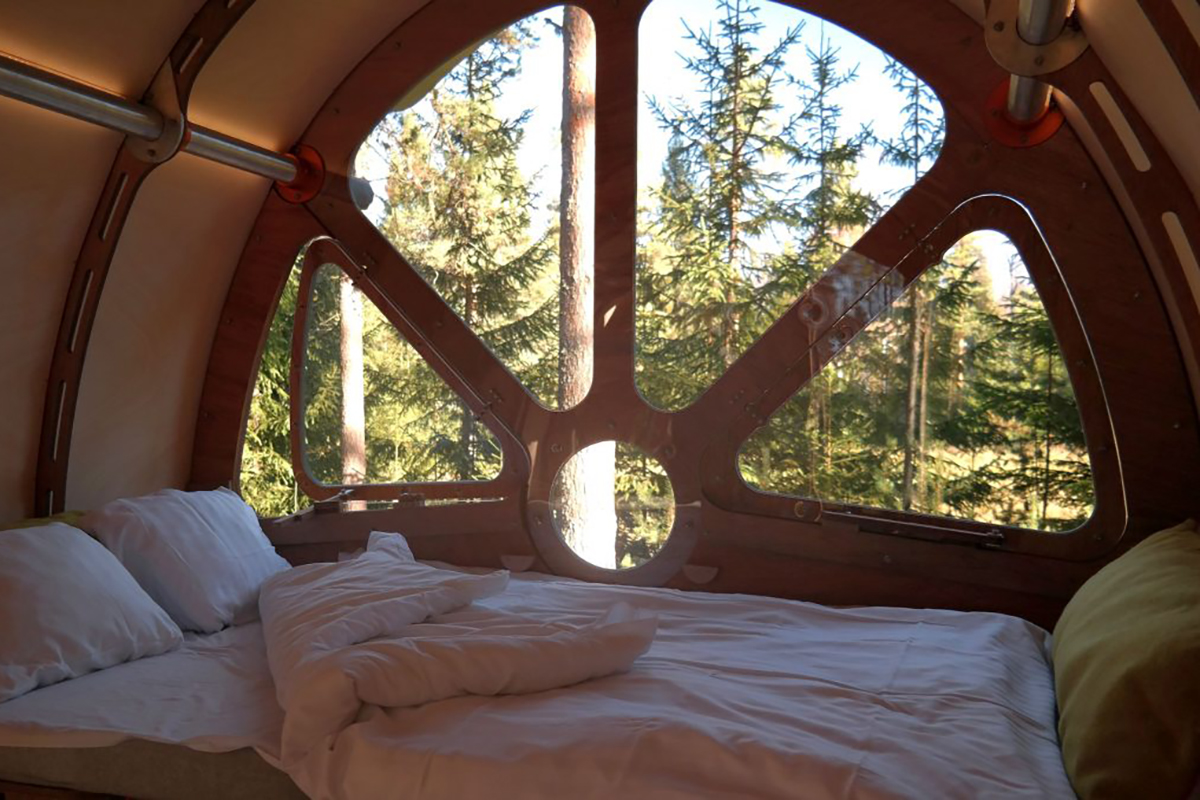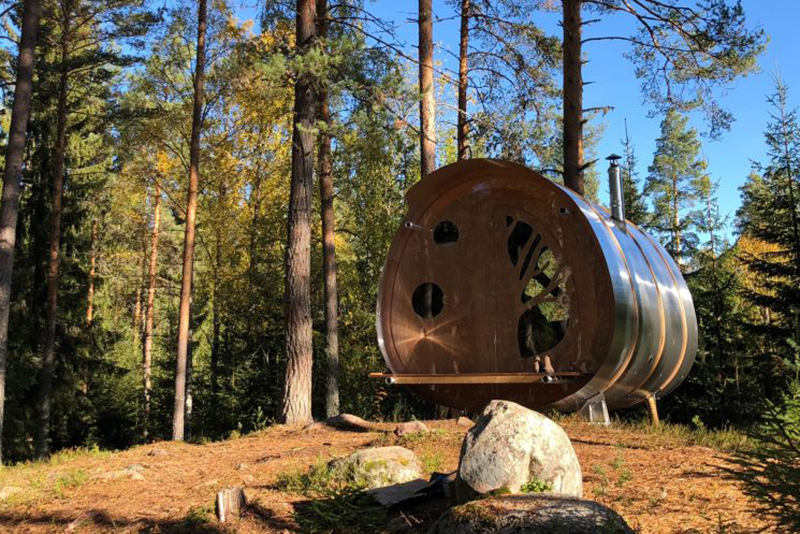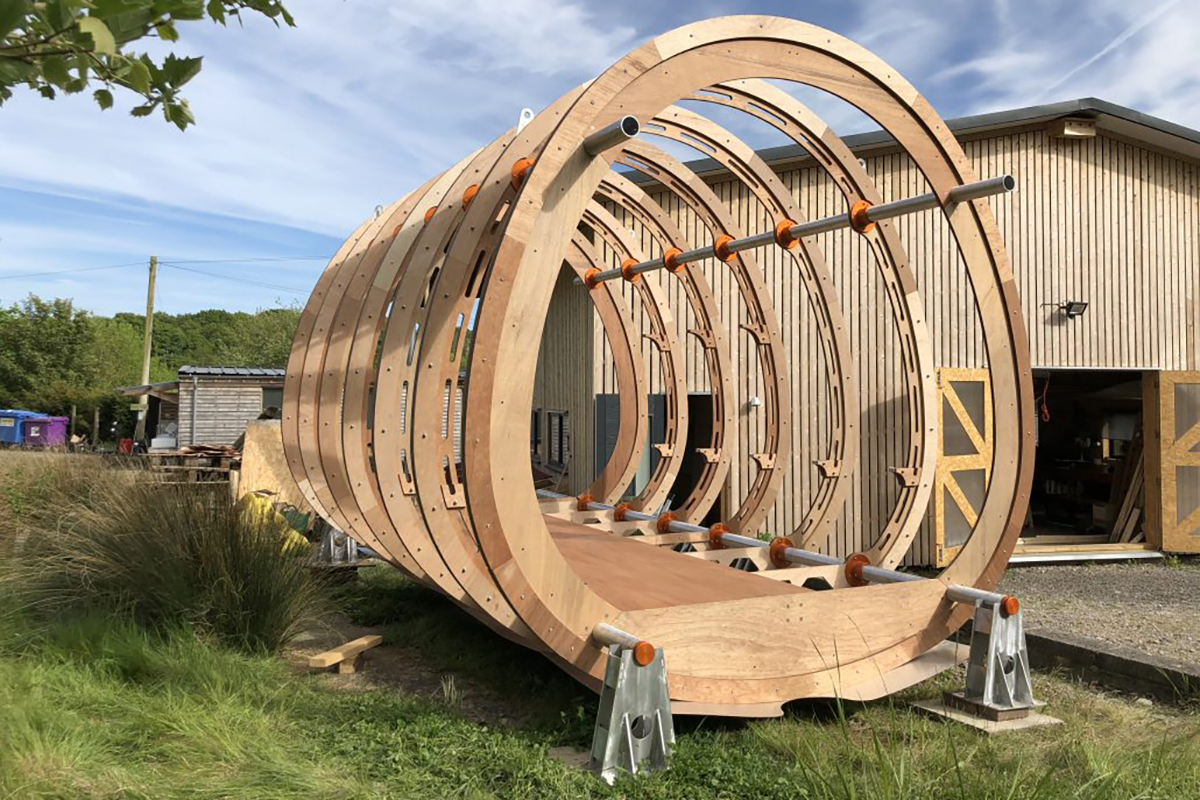From tiny homes to digital nomadism to embracing the fine art of Swedish “death cleaning,” there’s a movement afoot to live smaller. For some, that means a 120-square-foot tiny house in a friend’s suburban backyard; others seek a secluded patch of land in the wilderness to live life on their own terms. For the latter, Fuselage Wilderness Cabin is a near-perfect blend of rugged adaptability, livability, and affordability.

UK-based Tree Tents bills its Fuselage as a “wilderness cabin.” In reality, it’s part tiny home, part treehouse, and part home base for glamping. The exterior is striking and unlike any wilderness cabin we’ve ever seen. Both the silhouette and the construction are inspired by aircraft design complete with a cylindrical aluminum outer shell and asymmetrical double-glazed windows. If it weren’t for the stilts intentionally propping it up above the forest floor, it might look like the remnant of a plane crash. Thanks to those same stilts or an optional suspension kit, the Fuselage can be installed almost anywhere: on a sloping mountainside, at the side of a creek, or even hung from a tree.
The Fuselage can be installed almost anywhere: on a sloping mountainside, at the side of a creek, or even hung from a tree.
Inside, the design is Scandinavian modern with a clean, monochromatic color scheme, built-in birch wood furniture, and marine-grade plywood flooring. At a minimum, Fuselage includes two bunk beds and a convertible dining table and bed adjacent to a large picture window. If that’s too pared-down for your liking, Tree Tents will outfit your build with more livable options like a kitchenette, bathroom facilities, a wood-fired stove, and full climate control including air-conditioning and low-voltage radiant heating panels. Available solar panels offer the flexibility of indefinite off-grid living.
Thanks to lighter building materials and high-tech construction solutions like commercial 3D printers, the prefab off-grid housing market has exploded in recent years. The options available to minimalist home buyers have gone well beyond traditional tiny homes. There are ultra-minimalist A-Frame options like the Nolla cabin from NESTE which are designed to be installed almost anywhere with few or no building permits required. Monocabin is a more full-featured tiny house alternative that costs about as much as a mid-level SUV. If money is no object, Canada’s Backcountry Hut Company provides stunning modular huts with all the creature comforts of home. Most ship just like flat-pack IKEA furniture and can be quickly assembled in a group “barn-raising” process in as little as two days.
Tree Tents builds every Fuselage cabin to order, so no two are alike. Expect delivery in six to eight weeks and a base price around £26,000 (approximately USD $33,600) plus installation.
If you’re looking for a good bit of land on which to build, this 348,000-acre of pristine Patagonian wilderness promises plenty of privacy.
